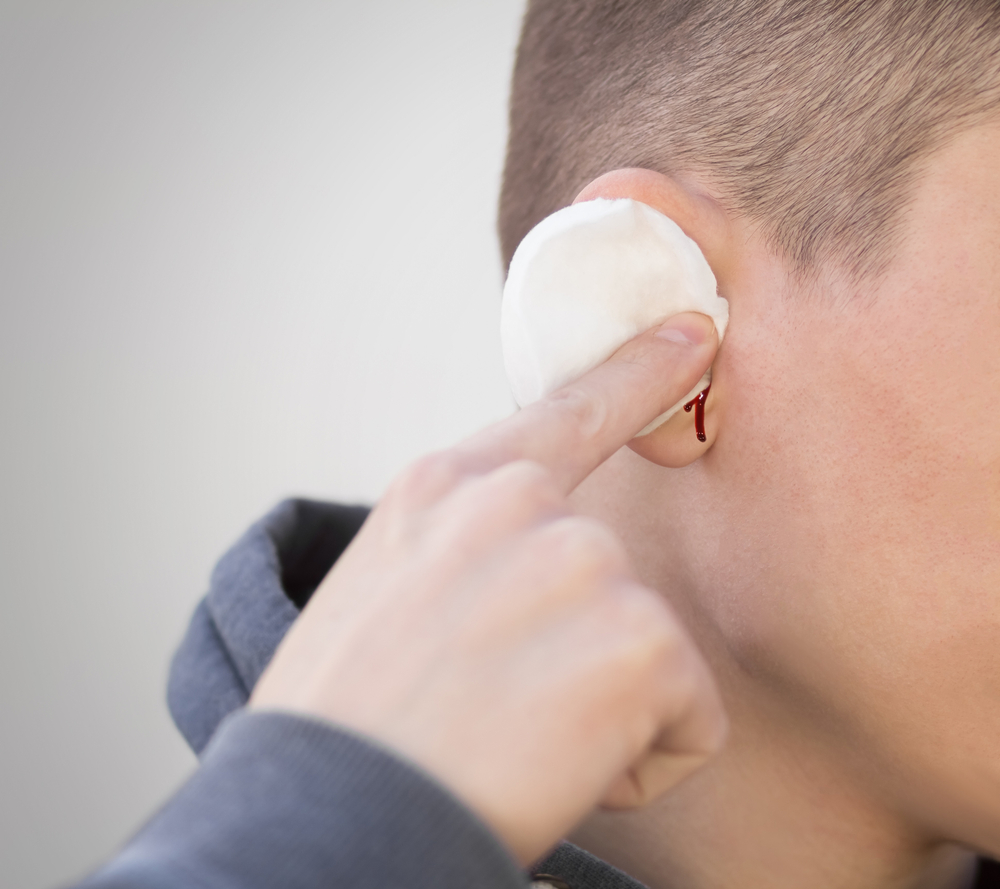Experiencing ear bleeding can be unsettling. Although it’s not always a medical emergency, it is a clear signal that something isn’t right. Whether caused by minor injuries, infections, or more serious underlying conditions, ear bleeding should not be ignored. The sooner you understand the cause and know when to seek professional care, the better you can protect your hearing health and prevent complications. In this article, we’ll discuss common causes of ear bleeding, when it’s time to consult a specialist, and how early treatment can prevent long-term issues.
Causes of ear bleeding
Bleeding from the ear can occur for various reasons. Some are minor and others that require urgent medical attention. Here’s a breakdown of common causes:
- Ear Infections
- Middle Ear Infections (Otitis Media): These are infections that affect the middle ear and can lead to the rupture of the eardrum, causing bleeding.
- Outer Ear Infections (Swimmer’s Ear): Infection in the outer ear canal can also cause pain, swelling, and bleeding if untreated.
- Middle Ear Infections (Otitis Media): These are infections that affect the middle ear and can lead to the rupture of the eardrum, causing bleeding.
- Ear Injury and Trauma: Accidental trauma to the ear, such as inserting cotton swabs too deeply or experiencing a direct blow to the ear, can damage delicate ear structures and lead to bleeding.
- Ruptured Eardrum (Perforated Eardrum): Sudden pressure changes (barotrauma), loud noises, or infections can cause the eardrum to rupture, leading to bleeding and possibly hearing loss.
- Foreign Objects in the Ear Canal: Children, in particular, may insert objects like beads or small toys into their ears, which can cause bleeding and infection if not promptly removed.
- Underlying Medical Conditions: Conditions such as blood clotting disorders, tumors (benign or malignant), and certain skin conditions can cause spontaneous ear bleeding. If you have a medical condition that affects your blood, this may increase the risk of bleeding in the ear.
Key warning signs to see an ear specialist
Not all cases of ear bleeding require immediate medical intervention, but there are specific symptoms that indicate the need for professional care. Be on the lookout for the following:
- Persistent or Heavy Bleeding: If the bleeding continues for an extended period or is heavy, it’s essential to seek medical help right away. Prolonged bleeding could indicate a more serious problem, such as an undiagnosed rupture or infection.
- Severe Pain or Worsening Symptoms: If the ear pain becomes unbearable or doesn’t improve over time, this could suggest that the underlying issue is worsening, requiring prompt evaluation.
- Hearing Loss or a Full Sensation in the Ear: If you notice that you’re losing hearing or feeling a sensation of fullness in your ear, it’s important to see a specialist. These symptoms, combined with bleeding, could indicate damage to the ear structures.
- Signs of Infection: The presence of fever, swelling, or pus-like discharge alongside ear bleeding is a clear indication of infection, which needs to be treated promptly to prevent further complications.
- Dizziness or Balance Issues: If ear bleeding is accompanied by dizziness, vertigo, or balance problems, it may indicate inner ear damage, which requires immediate medical attention to avoid long-term effects on balance.
The importance of early diagnosis and treatment
Early diagnosis of the cause of ear bleeding is essential to prevent serious complications. Without prompt treatment, ear bleeding can lead to:
- Permanent Hearing Loss: If left untreated, ear infections or injuries could cause irreversible damage to the ear and hearing.
- Chronic Infections: Ongoing infections can cause recurring ear bleeding and damage, potentially leading to more frequent medical interventions.
- Balance Disorders: The inner ear plays a critical role in maintaining balance. Untreated conditions could result in persistent dizziness or vertigo.
Consulting with a specialist will allow for a comprehensive examination and determine the best course of action for your specific situation.
How ear bleeding is treated
Treatment for ear bleeding will depend on the underlying cause. Some of the most common treatment methods include:
- Antibiotics for Infections: If an ear infection is the cause of the bleeding, antibiotics (oral or topical) may be prescribed to combat the infection and reduce the risk of further complications.
- Ear Drops to Relieve Inflammation: For inflammation or irritation in the ear canal, ear drops may be recommended to reduce swelling, promote healing, and alleviate pain.
- Surgical Intervention for Severe Cases: If you have a ruptured eardrum or significant injury, surgical treatment may be necessary to repair the damage and restore hearing function.
- Professional Removal of Foreign Objects: If a foreign object is stuck in the ear and causing bleeding, a healthcare professional will carefully remove it to avoid additional damage or infection.
Protecting your ear health
While ear bleeding can sometimes be caused by minor issues, it’s always best to err on the side of caution and consult a specialist if you experience persistent symptoms. Prompt treatment not only alleviates the immediate issue but also helps prevent long-term complications like hearing loss or balance problems.
If you experience ear bleeding, find a specialist near you to schedule an appointment and ensure that your ear health is properly cared for.
